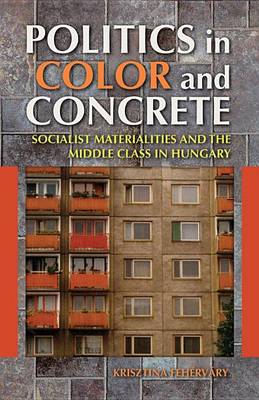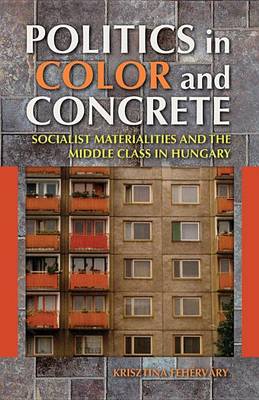
- Retrait gratuit dans votre magasin Club
- 7.000.000 titres dans notre catalogue
- Payer en toute sécurité
- Toujours un magasin près de chez vous
- Retrait gratuit dans votre magasin Club
- 7.000.0000 titres dans notre catalogue
- Payer en toute sécurité
- Toujours un magasin près de chez vous
Politics in Color and Concrete
Socialist Materialities and the Middle Class in Hungary
Krisztina Fehervary, Krisztina FehaervaaryDescription
Material culture in Eastern Europe under state socialism is remembered as uniformly gray, shabby, and monotonous--the worst of postwar modernist architecture and design. Politics in Color and Concrete revisits this history by exploring domestic space in Hungary from the 1950s through the 1990s and reconstructs the multi-textured and politicized aesthetics of daily life through the objects, spaces, and colors that made up this lived environment. Krisztina Féherváry shows that contemporary standards of living and ideas about normalcy have roots in late socialist consumer culture and are not merely products of postsocialist transitions or neoliberalism. This engaging study decenters conventional perspectives on consumer capitalism, home ownership, and citizenship in the new Europe.
Spécifications
Parties prenantes
- Auteur(s) :
- Editeur:
Contenu
- Nombre de pages :
- 312
- Langue:
- Anglais
- Collection :
Caractéristiques
- EAN:
- 9780253009944
- Date de parution :
- 01-09-13
- Format:
- Livre broché
- Format numérique:
- Trade paperback (VS)
- Dimensions :
- 152 mm x 226 mm
- Poids :
- 430 g

Les avis
Nous publions uniquement les avis qui respectent les conditions requises. Consultez nos conditions pour les avis.






